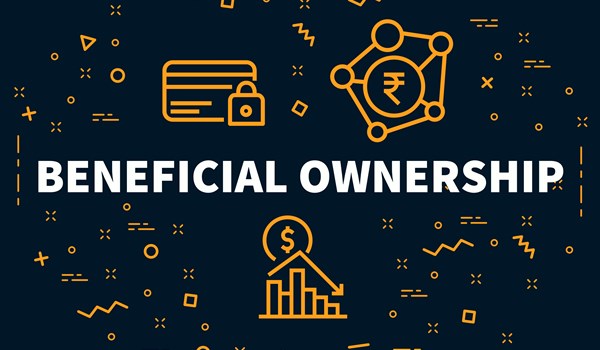Jurisdictions
Regions
Industry Sectors
07/12/21
US: FinCEN beneficial ownership registry takes shape in proposed rule.

As published on complianceweek.com, Tuesday 7 December, 2021.
A proposed rule for a new beneficial ownership registry was released Tuesday as part of the U.S. government’s efforts to pull back the veil on anonymous shell companies used to launder illicit profits from corruption, money laundering, terrorist financing, tax fraud, and other financial crime activities.
The notice of proposed rulemaking from the Treasury Department’s Financial Crimes Enforcement Network (FinCEN) addresses “who must report beneficial ownership information, when they must report, and what information they must provide.” Once it is established, the registry will be overseen and administered by FinCEN and can be accessed by law enforcement, financial institutions, and other “authorized users.”
The public will not have access to the registry. One potential problem that has already been called out by the banking industry is that financial institutions will need to obtain permission of the individual or corporation being researched before gaining access.
FinCEN said it will follow up the beneficial ownership registry rule with additional policies that would establish protocols for accessing and disclosing of beneficial ownership information. The agency will also revise its customer due diligence rule, which “requires certain financial institutions to identify and verify the beneficial owners of legal entity customers when those customers open new accounts as part of those financial institutions’ customer due diligence programs.”
Congress ordered the creation of a beneficial ownership registry as part of the National Defense Authorization Act for Fiscal Year 2021. The registry is also a key pillar of the Biden administration’s anti-corruption initiative, announced Monday.
“The proposed rule for beneficial ownership reporting is a major step toward addressing the gaps in our corporate transparency framework that allow corruption to flourish and illicit funds to flow into the United States,” said Treasury Secretary Janet Yellen in a statement. “The beneficial ownership rule will help close the loopholes that undermine U.S. national security, bolster economic fairness, and protect the integrity of our financial system.”
The public will have 60 days to comment on the proposed rule after it is published in the Federal Register on Wednesday.
The proposed rule identifies two types of companies that must file reports with the registry: domestic and foreign.
“A domestic reporting company would include a corporation, limited liability company, or any other entity created by the filing of a document with a secretary of state or similar office under the law of a state or Indian tribe,” FinCEN said in a fact sheet that accompanied the proposal. “A foreign reporting company would include a corporation, limited liability company, or other entity formed under the law of a foreign country and that is registered to do business in any state or tribal jurisdiction.”
Entities that would not be considered a “reporting company” for purposes of the beneficial ownership registry include those that employ more than 20 employees on a full-time basis in the United States; that brought in more than $5 million in gross receipts or sales in the previous year’s federal income tax return; or those that have “an operating presence at a physical office within the United States.”
A total of 23 types of entities would be exempt from the definition of “reporting company” under the proposed rule. Many of the exemptions—public companies, banks, insurers, brokers, investment advisers, accounting firms, public utilities, and more—are already “generally subject to substantial federal or state regulation under which their beneficial ownership may be known,” FinCEN said.
Certain trusts do not have the same state document reporting requirements as corporations and LLCs, creating a situation where they “would appear to be excluded from the definitions to the extent that they are not created by the filing of a document with a secretary of state or similar office,” FinCEN said in its fact sheet. The notice seeks public comment on whether trusts should be required to file similar information with FinCEN as corporations and LLCs.
Many U.S. states already compile a version of the beneficial ownership registry through their secretary of state offices, with some notable exceptions, like Delaware and South Dakota. The new rule will effectively end the practice in some states of allowing corporations and LLCs to shield the identity of their beneficial owners. The rule will also make it more difficult for people who purchase U.S. real estate through all-cash transactions to hide their identity behind shell corporations.
Under the rule, all existing domestic and foreign reporting companies would have one year after its effective date to file their initial reports. Companies created or registered after the effective date would have 14 days after formation to file.
The proposed rule defines a beneficial owner as “any individual who meets at least one of two criteria: (1) exercising substantial control over the reporting company; or (2) owning or controlling at least 25 percent of the ownership interest of the reporting company.”
The proposal defines the terms “substantial control” and “ownership interest” and sets forth standards for determining whether an individual owns or controls 25 percent of the ownership interests of a reporting company. The definition of “substantial control” is meant to “capture anyone who is able to make significant decisions on behalf of the entity” and is “crucial to unmasking shell companies,” according to FinCEN’s fact sheet.
The proposed rule would require a reporting company to identify itself and disclose four pieces of information about each of its beneficial owners and company applicants: name, birthdate, address, and a unique identifying number from an acceptable identification document (and the image of such document), according to FinCEN’s fact sheet.
If an individual provides his or her beneficial ownership information to FinCEN, the individual can obtain a “FinCEN identifier,” which can then be provided to the agency in lieu of other required information about the individual.
The proposed regulation also includes a voluntary mechanism to allow reporting of Taxpayer Identification Numbers for beneficial owners or company applicants.



